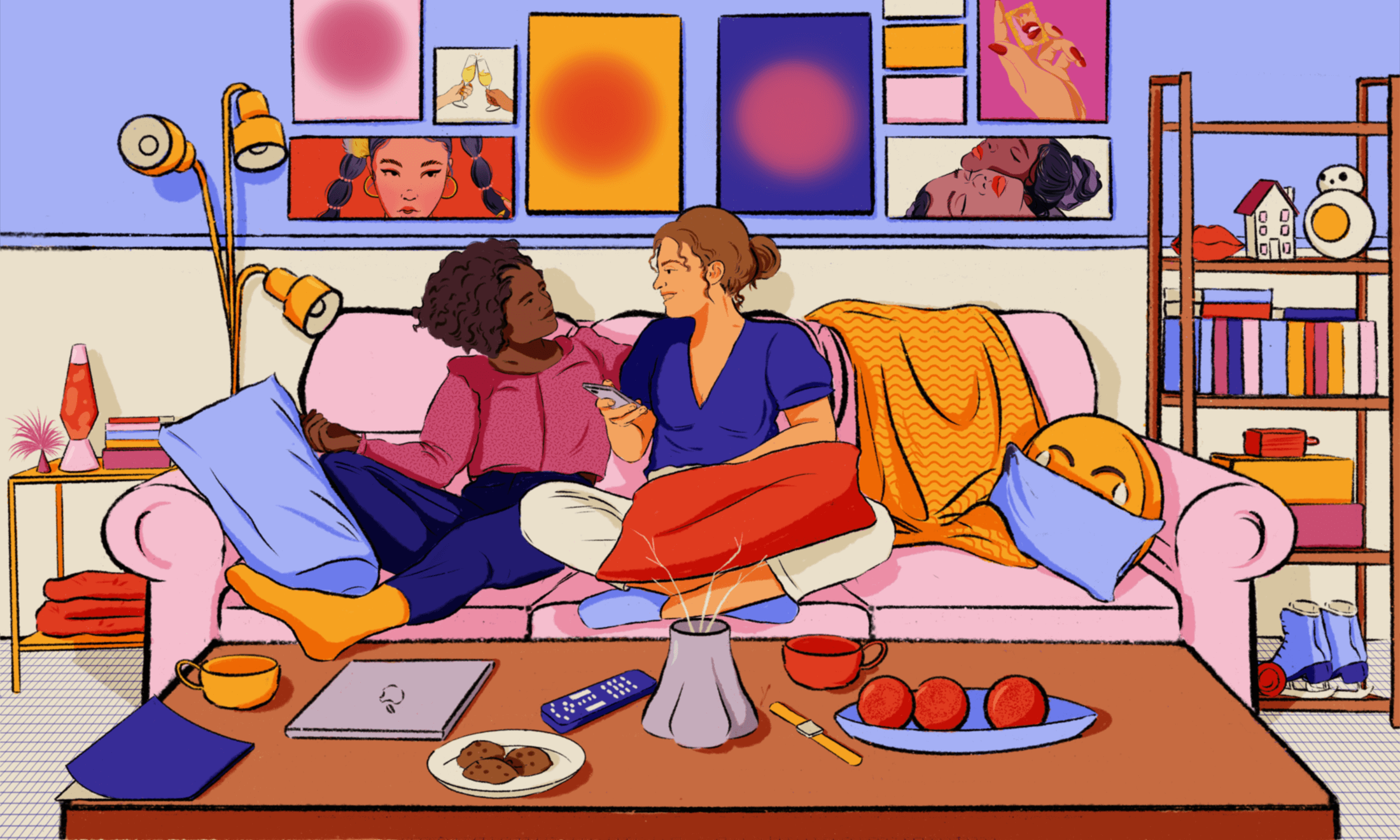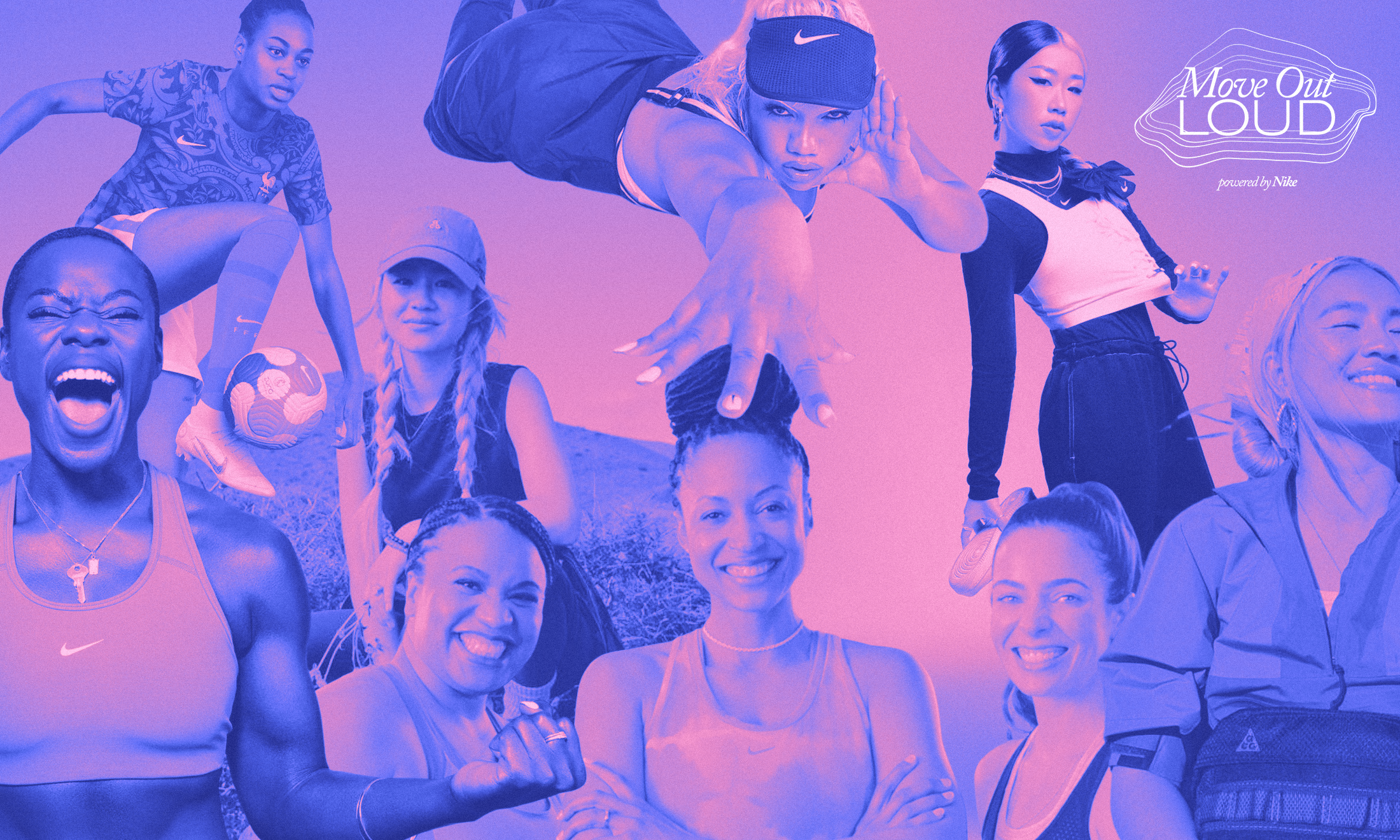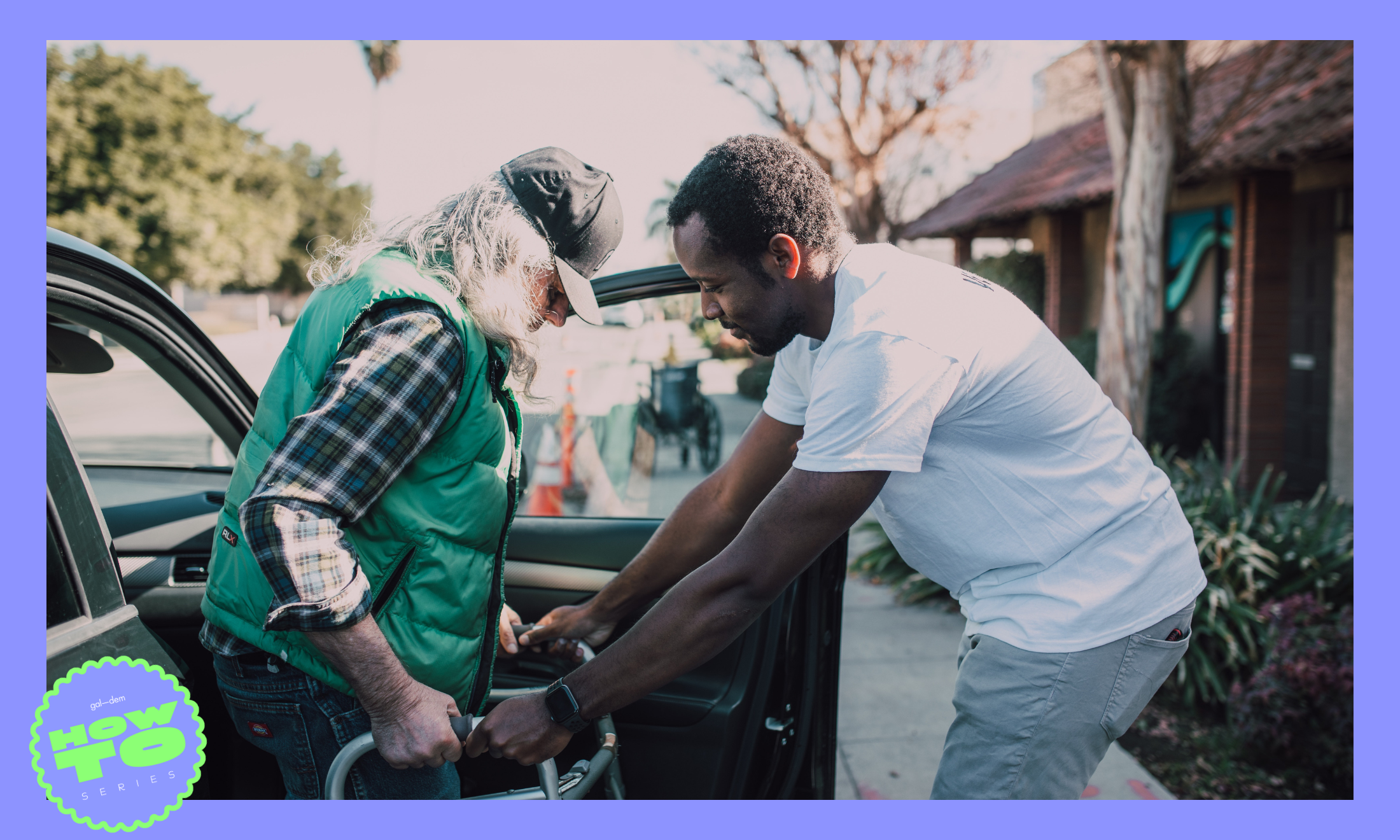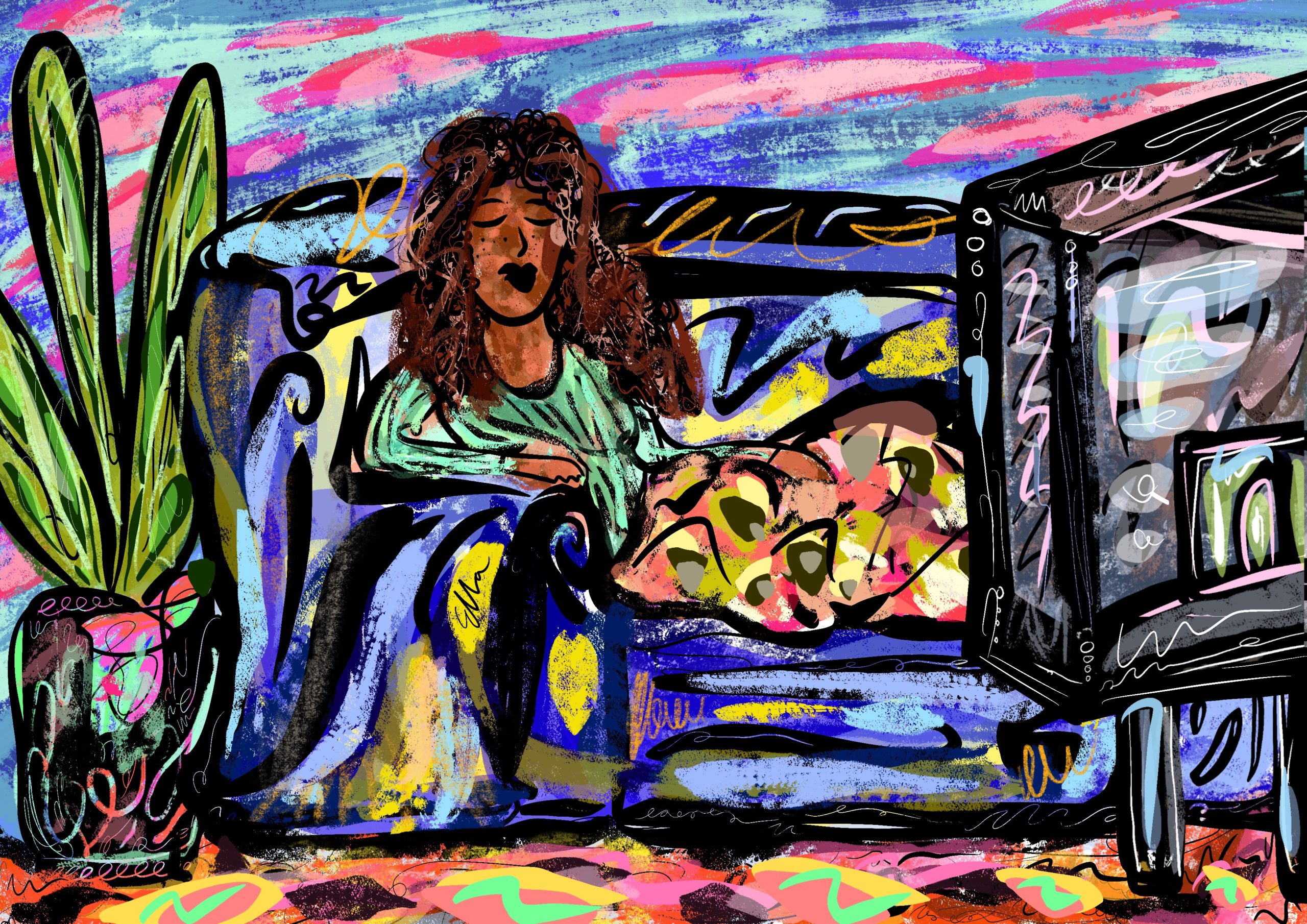
Illustration by Ella Dabysing
In a uniquely lonely year, TV was my most reliable friend
I experienced a phenomenon called ‘parasocial interaction’, which manifests in illusions of friendship and intimacy with people in media.
Tara Joshi
28 Dec 2020
I’ve been avoiding consuming any culture that’s too heavy or too rooted in 2020, opting for fantasy and avoidance instead. But recently, I started a show called Mythic Quest: Raven’s Banquet. Released this year, it’s an absurd workplace sitcom created by and starring Rob McElhenney (Always Sunny fans know), and takes place at a company that runs an online video game. There’s an unpacking of masculine ego, Danny Pudi playing a dirty capitalist obsessed with Scrooge McDuck, a cute storyline playing out between two queer WOC gamers (Imani Hakim and Ashly Burch) and a beautiful episode with New Girl’s Jake Johnson alongside Cristin Milioti that quietly echoed my overarching sense of existential dread this year. But what really hit me was the ‘Quarantine’ episode.
Protagonist Poppy, played by Filipina-Australian Charlotte Nicdao, is living thousands of miles from her family, keeps her camera off during work calls, makes joke-y reference to not showering or doing laundry very often because she’s alone for lockdown, and she buries herself in work. It’s easy for her to hide that she’s not coping in the pandemic when she’s behind a screen. Her struggling with lockdown, through the lens of her being an immigrant woman of colour, resonated with me. A genuinely magic piece of remotely-made storytelling which centred around community, collectivism and striving to be there for one another, it was a reminder of all the weight we’ve been carrying so far away from our loved ones, this year especially.
Like all of us, I spent an unusual amount of 2020 alone. My family were locked down in India and, when London’s restrictions “relaxed” in the summer months, I personally could not. I’m prone to anxiety as it is, and my brain spun out with panic on the rare occasions I did meet with friends outdoors or in “safe” restaurant settings, even indoors with my support bubble. For 14 days after any IRL interaction, I would internally count and worry. There were days my anxiety was so bad I convinced myself I couldn’t breathe. I was hooked to the news and knew the daily infection and death rates by heart. I completely understood friends I saw on social media trying to enjoy things as best they could, but I kept thinking about my loved ones who had spent time in intensive care because of Covid-19, about losses I had been unable to mourn with family because of the virus. I couldn’t be responsible for spreading it and causing someone else that grief. And, to my mind, cocooned beneath my duvet, I wasn’t really alone: I had television.
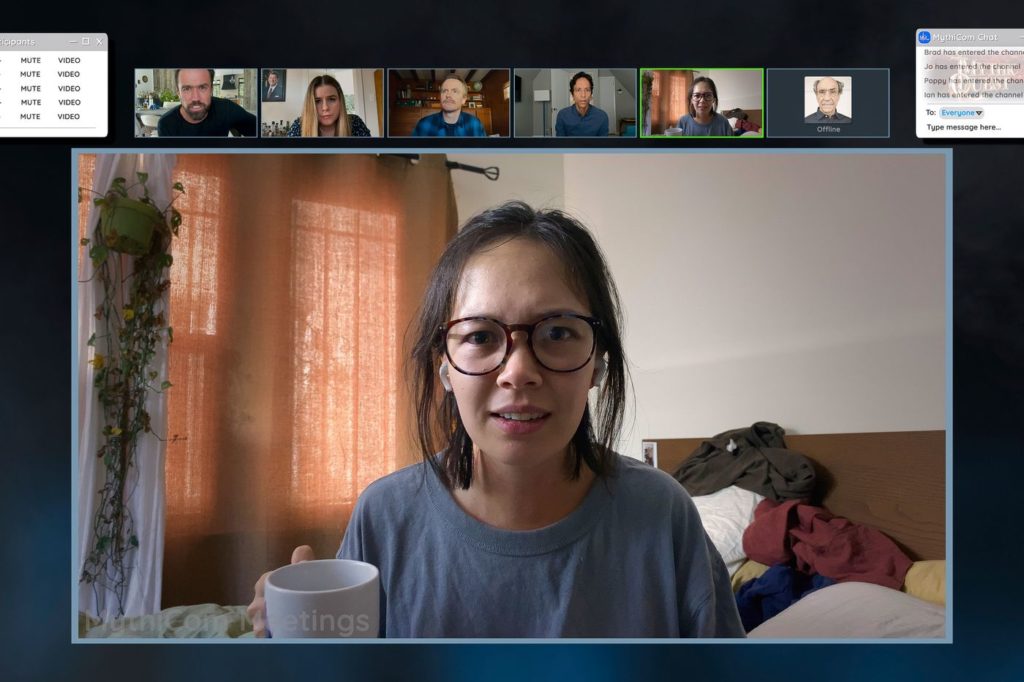
There was, sadly, no real gossip happening among my friends, most of whom are in relationships, and so our shared points of virtual discussion became stories of TV characters. Having a common thing to talk about that wasn’t the pandemic has been such a necessary relief. Tiger King became heightened water-cooler chat as the world went into lockdown, giving a sense of community as we reacted online in unison to the chaotic, surreal (and, to be honest, quite bleak) Netflix doc.
I finally started Insecure, going back and forth over voice notes with a mate on important subjects such as: how hot literally every single cast member is, whether Molly was being toxic, was Issa getting back with Lawrence really a good idea, could we go to LA and visit some of these restaurants one day?
My brown friends debated whether Never Have I Ever was joyous or deeply problematic or both over WhatsApp. A childhood BFF started texting me about Sister Sister, and we discussed how it really held up 20 years beyond watching it together back in the day. My support bubble watched cooking shows and Below Deck, and there was something nourishing about not really needing to talk beyond looking at delicious food, yacht-life drama and yelling at (the many!) microaggressions. Irish mates discussed how true to life Normal People was versus our own experiences at college in Dublin back in 2011. So many people I knew were, like me, watching the Sopranos, sending one another memes, recipes for Italian food and solace for the grim crushes we were starting to form. My mate fancied Tony, I fancied Furio.
“To my mind, cocooned beneath my duvet, I wasn’t really alone: I had television”
Which brings me to the second, weirder kind of “company” that TV gave me. A friend recently texted me about something called “parasocial interaction”. In 1956, sociologists Richard Wohl and Donald Horton coined the term, to encapsulate the psychological connection that an audience might experience with media figures and performers. To paraphrase the Wikipedia article, it manifests in illusions of friendship and intimacy.
Understandably, these kinds of illusions have not been an unusual experience this year, where for many of us virtual interaction has been one of our only connections to other people. A cursory Google of “parasocial interaction 2020” will bring up academic articles trying to comprehend how people have been using media (including social media) to cope through the strange stillness and loneliness of the pandemic. It also brings up a fascinating Slate article about a science journalist who suddenly got a huge crush on Harry Styles. They wrote, “It is a classic pandemic love story: He kept popping up on my TikTok feed. I listened to his newest album. Suddenly, with little else to occupy myself, he was all I could think about.”
Parasocial interaction as a coping mechanism is something that feels very relatable to me. Left for so much of the year to my own devices, low-stakes TV filled up the void in my brain, distracting me from bad, sad thoughts, giving me some illusion of safe human connection.
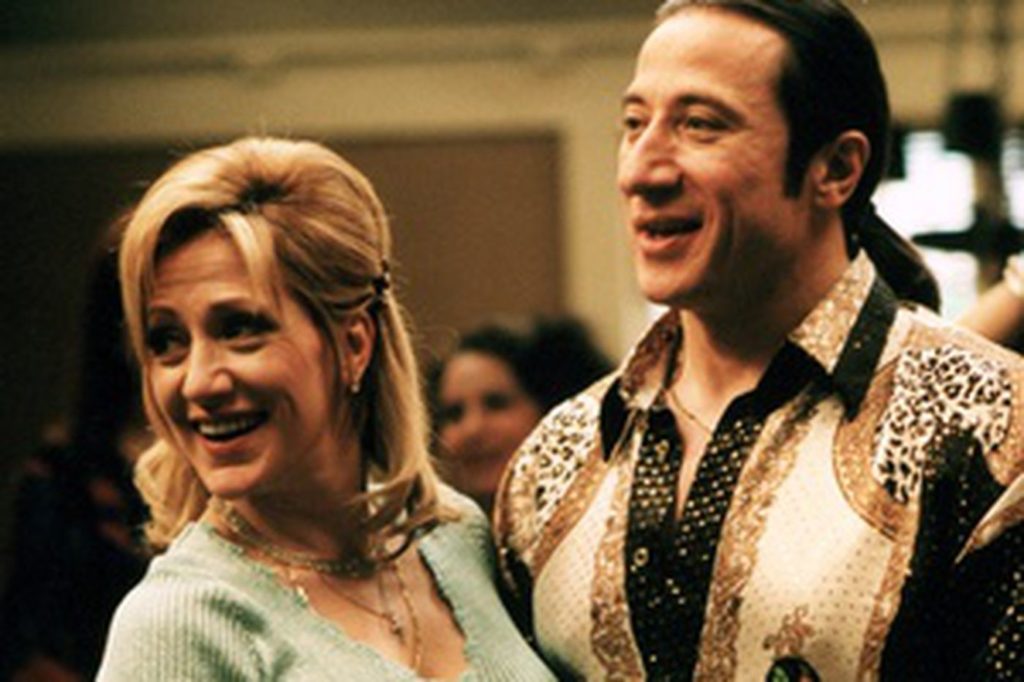
So here I was crushing on a violent but gentle Italian dude with tender physicality and a ponytail (being single in a global pandemic is not a vibe). When I was homesick, I found comfort in Maya’s mother on Pen15 quietly insisting her white friends take off their shoes when entering the house. When I was missing one of my best friends, I rewatched New Girl, the show we had watched together back in college and harvested in-jokes from (for what it’s worth, it’s a solid anxiety coping mechanism, too, rewatching stuff you know inside-out to soothe you). I felt hollowed out considering my career path as Alexis and Ted on Schitt’s Creek considered theirs. When I was craving gigs and record stores, I watched High Fidelity, and gazed yearningly as Zoë Kravitz was crate-digging or pining after terrible boys in bands. Her character Rob even jokes in the show about having never watched the Sopranos, and when she finally puts on an episode it made me want to find out her own Soprano crush. Is that a normal thing to want to know of a…fictional character? Not sure.
What I do know is that, even when I closed my laptop, my mind was filled with these characters and their worlds. Had I fallen deep into a parasocial interaction wormhole? Probably. But at least I had stopped memorising the news.
I lack the mental discipline for “proper” meditation, and attempting it generally just makes me feel more anxious, but a good half-hour sitcom can silence the whirring thoughts for a brief moment. A Pisces through and through, I love becoming engrossed in these made-up worlds and not having to think about reality, pausing only to get deep into Reddit theories, trivia and easter eggs. This was true even pre-pandemic – I don’t think I would have my job if I wasn’t a culture nerd – but a year in near-isolation meant I was back to teenage levels of fictional character crushes, shipping and obsessively delving into threads and forums. Without realising, television was becoming my preferred way to process things.
The peak of this came when I started watching Community. I somehow missed it during its 2009-2015 run, but Netflix pushed it in front of me earlier this year, its algorithm too aware of my adoration for lil’ sitcoms with groups of lovable, dysfunctional misfits. I quickly became transfixed, guzzling it down with all its offbeat humour, the layers of meta in-jokes making me feel blanketed in a warm friendship. Loading up an episode felt like a sweet hug which is super important given I’m in a touch deficit and can literally count the number of real hugs I’ve had since March.
“Parasocial interaction manifests in illusions of friendship and intimacy”
In season 5, when Donald Glover’s character Troy leaves his goodbye with Abed, played by Danny Pudi, felt deeply personal and left me weeping for a long time after. I was completely bereft as though I had lost a friend too, and had to pause watching the series for a while – retrospectively, I think I was processing some of my own, actual grief, albeit via the TV show. It felt fitting, in a way, given that much of Community hinges on Abed processing the world through the lens of pop culture – albeit, it’s not so much parasocial interaction in his case.
Abed is a dorky guy who, until meeting the other protagonists, has been pretty isolated – which, y’know, 2020 mood. I haven’t been great at voicing how I’m feeling aloud this lonely year, largely because I’m conscious that everyone has been going through it too. There are multiple episodes where Abed can’t express how he’s feeling, and so it manifests via homage to culture instead. When he finds out his mum is spending Christmas with her new family instead of visiting him like usual, he can’t admit it aloud and instead unpacks how he’s feeling through a magical stop-motion musical adventure. When Troy leaves, Abed insists on a game of the floor is lava – if all of them keep playing, he won’t have to deal with the reality that his best friend is moving on.
In some ways, this characteristic is a vessel that allows the writers and show creator Dan Harmon to celebrate culture they love – but in other ways, I think it just rings true as a means through which many of us process our lives. Sometimes it’s easier to be distracted, or to see something on a screen or read it in a book and slowly acknowledge, “this is how I’ve been feeling too.”
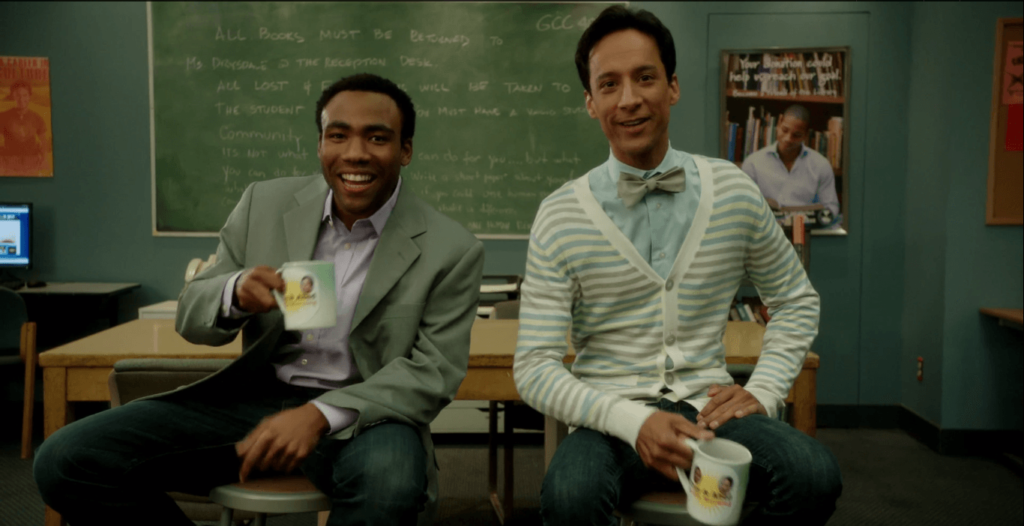
It was while pausing Community and missing its characters that my newfound love of Danny Pudi led me to watch Mythic Quest – and, in turn, it led me to having that moment. When Poppy finally has a cry and admits she’s struggling in the pandemic, I could feel myself breaking too. In confessing how she’s feeling, Poppy is reminded of the warmth, care and love she is surrounded by even in this exceptionally shitty year (and the episode’s ending is pure joy). The next time a friend texts and asks how I am, I decide to tell the truth. It is not easy, but it feels like it might be better than hiding beneath blankets and pretending I’m fine, buffering another half-hour of fictional friendship. Just because everyone is having an existential crisis this year, doesn’t make your own less valid. Or, as Megan Nolan recently put it: “There are not a finite number of ways to have felt pain this year“.
Essentially, this is my very long version of the “thank you for changing my life” meme, to all these shows and characters who have been a lifeline during this time – the response in this case being, “I’m literally a fictional character on a TV show”.
I suspect I’m not alone in having had a year of parasocial interaction, in which TV not only helped me escape, but gave me tools to process everything in the absence of friends. So until I can hug my mates again, I guess it’s time for more Troy and Abed in the morning.


